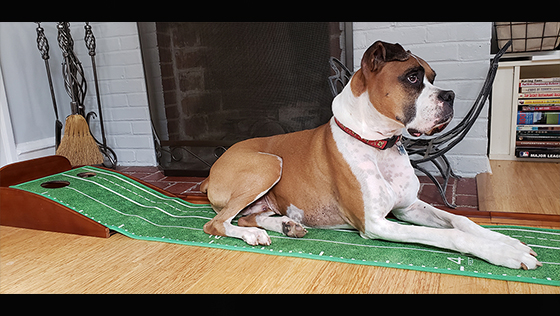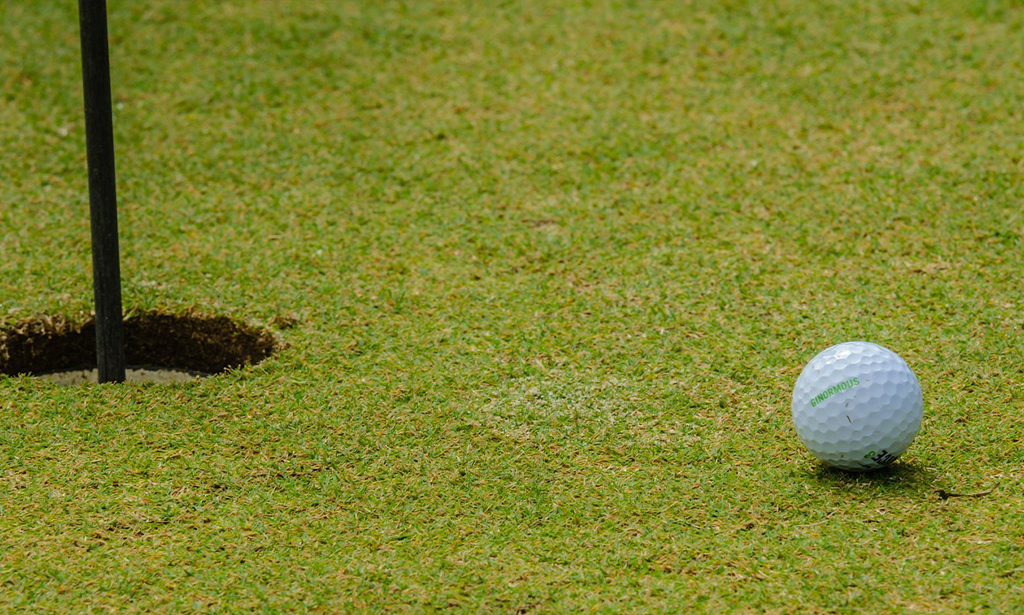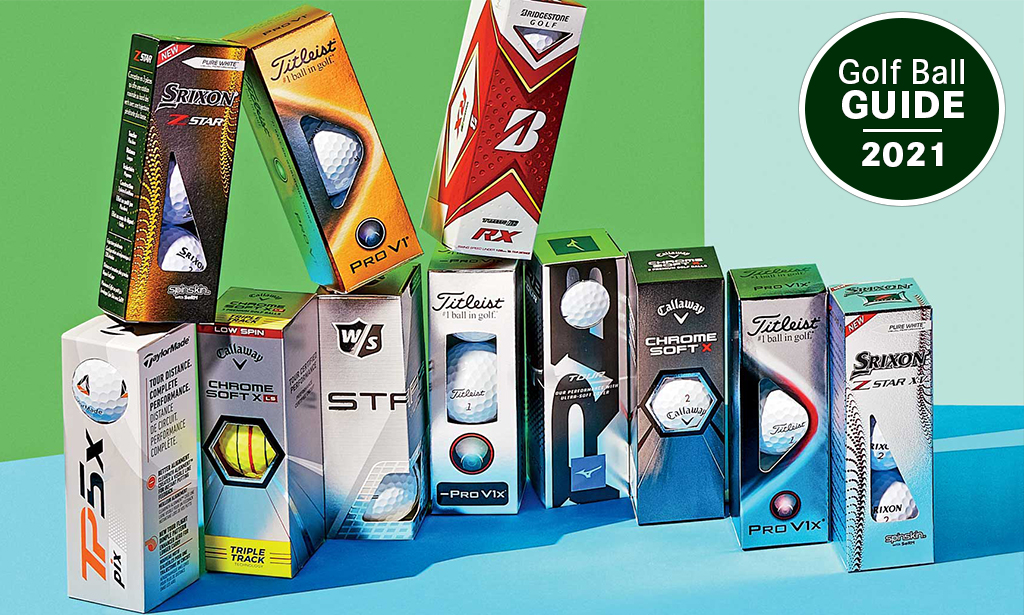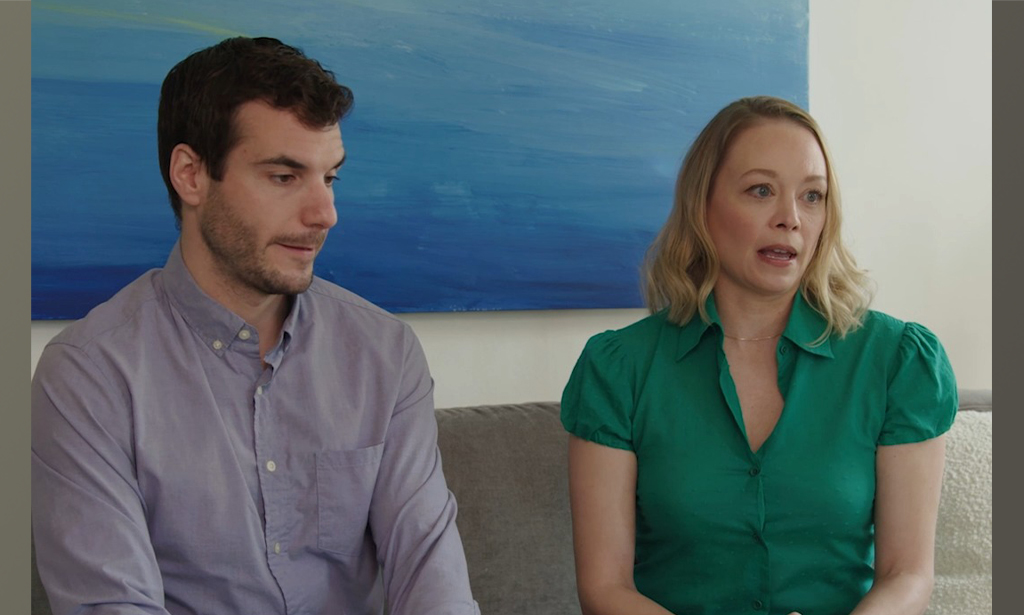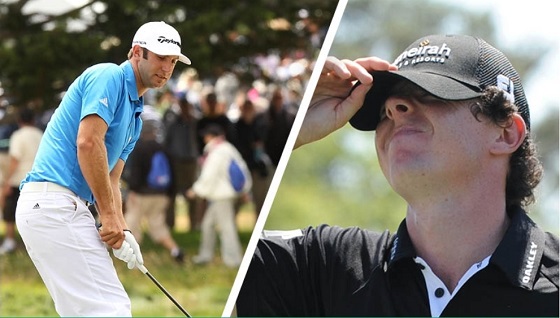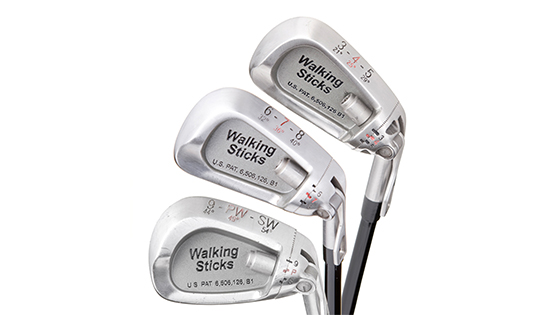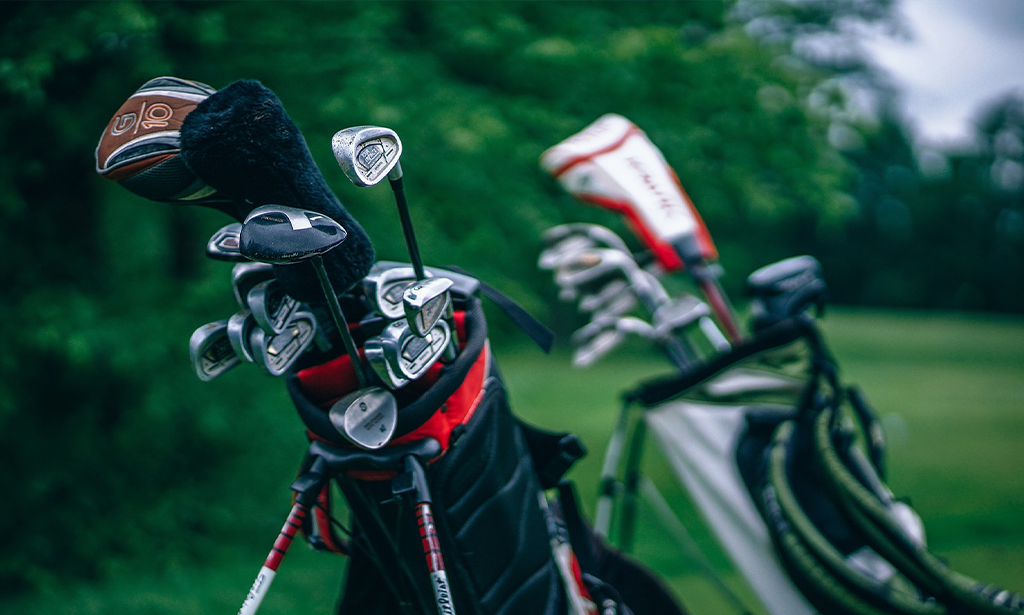Blog
Does Bryson Regret Not Getting Vaccinated?
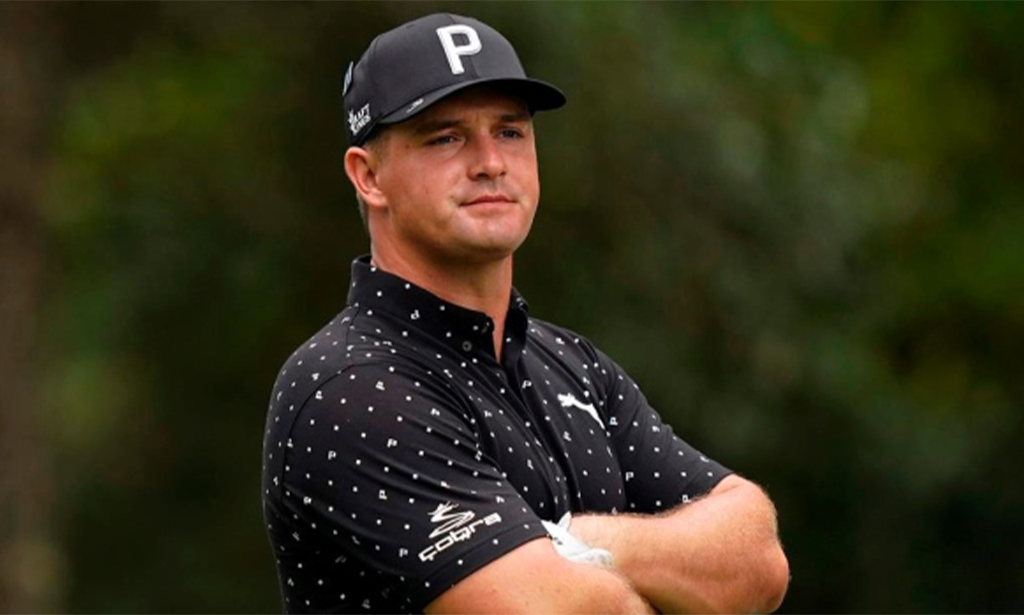
A positive COVID-19 test knocked Bryson DeChambeau out of the Summer Games in Tokyo. It also seemingly knocked the wind out of his sails. Or so we thought…
Still, despite his dream of representing the U.S. in the Olympics suddenly turning into the unfortunate reality of handing his spot over to Patrick Reed, apparently DeChambeau doesn’t regret his decision to decline getting vaccinated earlier this year.
Young and Healthy
“The thing is, the vaccine doesn’t necessarily prevent it from happening,” DeChambeau said Wednesday at TPC Southwind following his pro-am round ahead of the World Golf Championships-FedEx St. Jude Invitational. “I’m young enough. I’d rather give (the vaccine) to people who need it. I don’t need it. I’m healthy. I’m a young individual who will continue to be healthy and continue to work on my health.” Given the recent increase in cases due to the Delta variant and a shortage of vaccines, with almost 500,000 people a day initiating the vaccine, this position may hold a little weight. But we have to ask, is this just a posturing move from the brazen young “Bomb & Gouge” athlete?
DeChambeau seemingly stands firm on his position, despite the Centers for Disease Control and Prevention stating that currently 90 percent of all positive cases – and 95 percent of all hospitalizations due to COVID – are the result of unvaccinated individuals.
“I don’t think that taking the vaccine away from somebody who could need it is a good thing for me,” he said. “Like my dad. He got it early on because of his status, being a diabetic. Now, over the course of time, if they really, really mainstream (the vaccine) and everything is vetted out, I won’t have an issue.” Our position is with all the responsibility: travel, entourage, playing with random pairings, etc…it may make more sense for ther PGA to enforce that all PGA players need to be vaccinated by a certain date, say 2022.
DeChambeau, the reigning U.S. Open champion and ranked No. 7 in the world, tested positive twice just days before he was scheduled to fly to Tokyo. The love him or hate him Patrick Reed (most in category B) replaced DeChambeau on the roster. DeChambeau had tested negative three times before playing in the British Open in mid-July, where he tied for 33rd.
DeChambeau, 27, had also tested negative ahead of traveling to Tennessee.
‘Bound to happen’
“It was the first time I tested positive,” he said. “It was bound to happen. Unfortunately, it happened during that week. The odds are, you’re testing year-round, you’re traveling the world, it’s going to happen. Ironically, our position is that is precisely why you WOULD be pro active and get the shots. At least eliminate the majority of the variables…
“I tried to take all the necessary precautions to not get contracted. Unfortunately, I tested positive. We took a couple tests and tested negative both times and I couldn’t do anything about it.
“I didn’t feel (any symptoms) until two days after I tested positive. It was weird. I didn’t feel anything at all and then, all of a sudden, symptoms started coming on. I don’t know where I got it, how I got it, I was just home in Dallas and it was in the air. The day I tested positive I thought it was a false positive. That’s why I thought I was asymptomatic.”
Fatigue was his overriding symptom and DeChambeau said he slept “all the time.” He said he felt weaker as well. He initially felt it was more so because he was behind d on his workout schedule due to the fact he was sleeping much of the day and night. He also had a day full of “a few coughing spurts.” Because of his inactivity, he didn’t eat much, as well. All in all after the 7-10 days he was back to his usual self.
He said he’s lost 8-10 pounds and has been struggling with allergies since testing positive. He said he started feeling much better – “Where I could spend a full day outside,” he said – three days ago.
But How’s His Performance?
As for his power?
“I still hit golf balls in my stimulator. I don’t have as much speed coming back from it. I just didn’t practice for a week,” he said. “With my irons, nothing (speed wise has been lost). With driver, I can’t hit driver at home. My ceiling isn’t high enough. I’ve probably lost 5 mph with my driver.”
Despite losing his place on Team USA for the Olympics, DeChambeau did in fact watch the men’s golf competition.
“It was sad when I tested positive,” DeChambeau said about missing the Olympics. “After I tested positive, my brain just shifted to a place where I just wasn’t in the Olympics. I love the Olympic Games & I love my country. I hope I can be there in three years.”
DeChambeau has only played two 9-hole rounds since his positive COVID result – both here at TPC Southwind.
“I’m not really expecting much,” he said of this week. “I’m just going out here and trying to get through the week and feel comfortable and then do it again.
“Maybe lower expectations will help me this week.”
Blog
On the Importance of Not Caring: A Guide to Lowering Your Score
Worry causes many issues. When you are able to just stop, a wonderful thing happens. Follow this guide from Ty Webb to learn more.
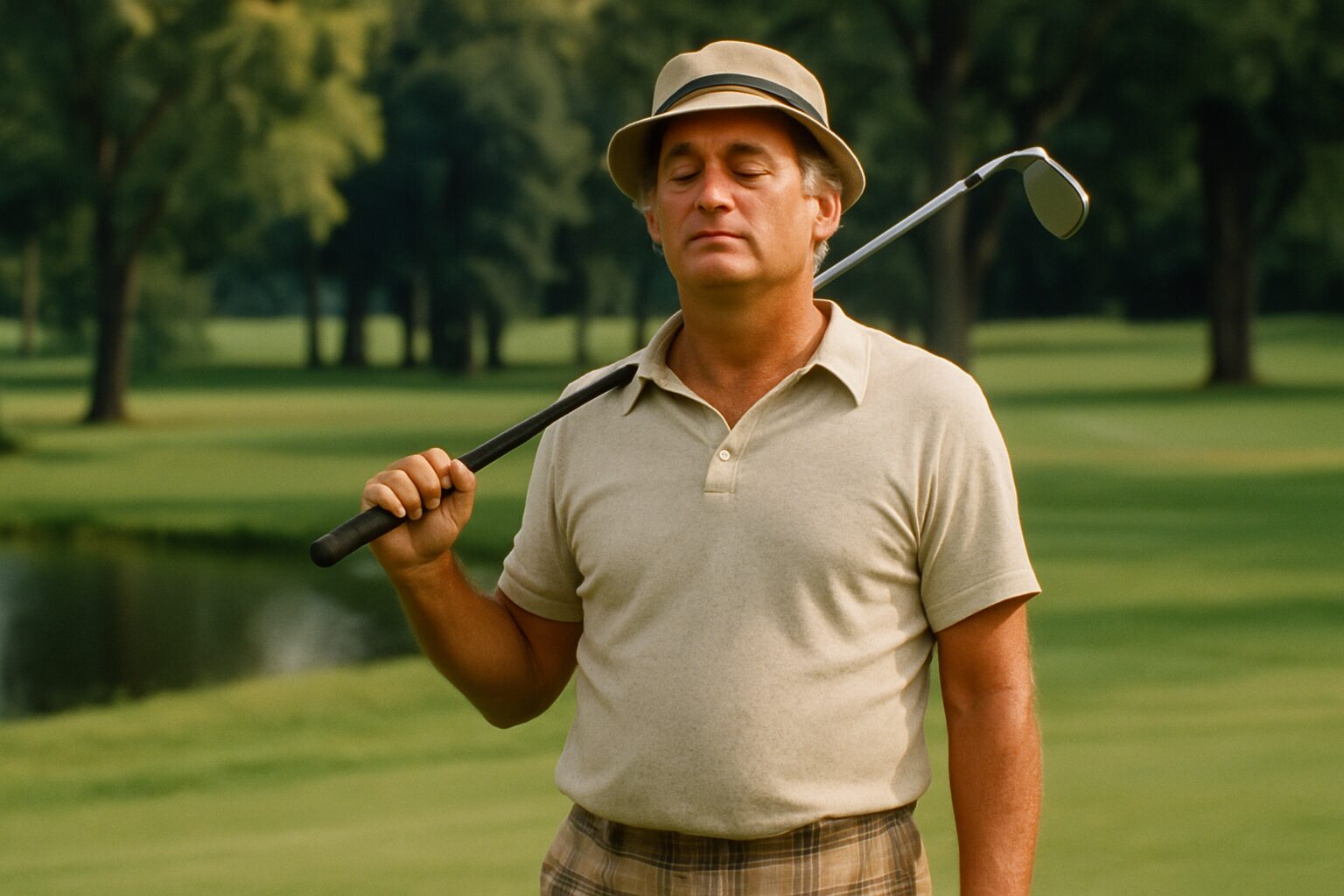
They say golf is a game of mental fortitude, of unwavering focus, of meticulous planning. They say you must visualize the shot, commit to the swing, and execute with precision. And to them, I say, “Hogwash!” Or perhaps, “A flute with no holes, is not a flute. A donut with no hole, is a Danish.” Because, my friends, the true secret to lowering your score, to achieving that elusive state of golfing nirvana, is to simply not care. Not one whit. Not a single, solitary damn.
Think about it. When do you hit your best shots? Is it when you’re agonizing over every blade of grass, every gust of wind, every microscopic imperfection on the green? Or is it when you’re distracted, perhaps by a particularly interesting cloud formation, or the existential dilemma of whether to order a hot dog or a chili dog at the turn? It’s the latter, isn’t it? Because when you stop caring, you stop thinking. And when you stop thinking, you start playing golf.
The golf swing, in its purest form, is an act of instinct, a fluid motion unburdened by the shackles of conscious thought. But we, in our infinite human capacity for self-sabotage, insist on overthinking it. We analyze, we dissect, we intellectualize. We turn a simple act of hitting a ball into a complex mathematical equation, a philosophical treatise on the meaning of spin and trajectory. And what is the result? A hooked drive, a chunked iron, a three-putt that would make a novice weep.
But when you don’t care, a magical transformation occurs. The tension drains from your shoulders, the grip loosens, the mind clears. You swing, not with intent, but with a blissful indifference. The ball, sensing your newfound detachment, responds in kind. It soars, it draws, it fades, it lands precisely where it was always meant to be. It’s as if the ball itself is saying, “Finally! Someone who understands me! Someone who isn’t trying to force me into submission!”
Of course, this doesn’t mean you should actively try to hit bad shots. That would be caring, in its own twisted way. No, the art of not caring is a subtle one. It’s a state of detached engagement, a Zen-like acceptance of whatever the golf course throws at you. A bad bounce? Who cares. A missed putt? Such is life. A lost ball? Perhaps it’s off on a grand adventure, a journey of self-discovery. And in that detachment, in that blissful indifference, you will find a freedom that transcends the scorecard.
So, the next time you step onto the tee, take a deep breath. Let go of your expectations, your desires, your desperate need for perfection. Embrace the chaos. Embrace the absurdity. And most importantly, embrace the profound, liberating power of not caring. For in the gentle art of indifference, you will find not only a lower score, but a deeper, more meaningful connection to the game. Or at least, a more enjoyable round.
Blog
The Art of the Unsolicited Golf Tip: How to Annoy Your Playing Partners with Wisdom
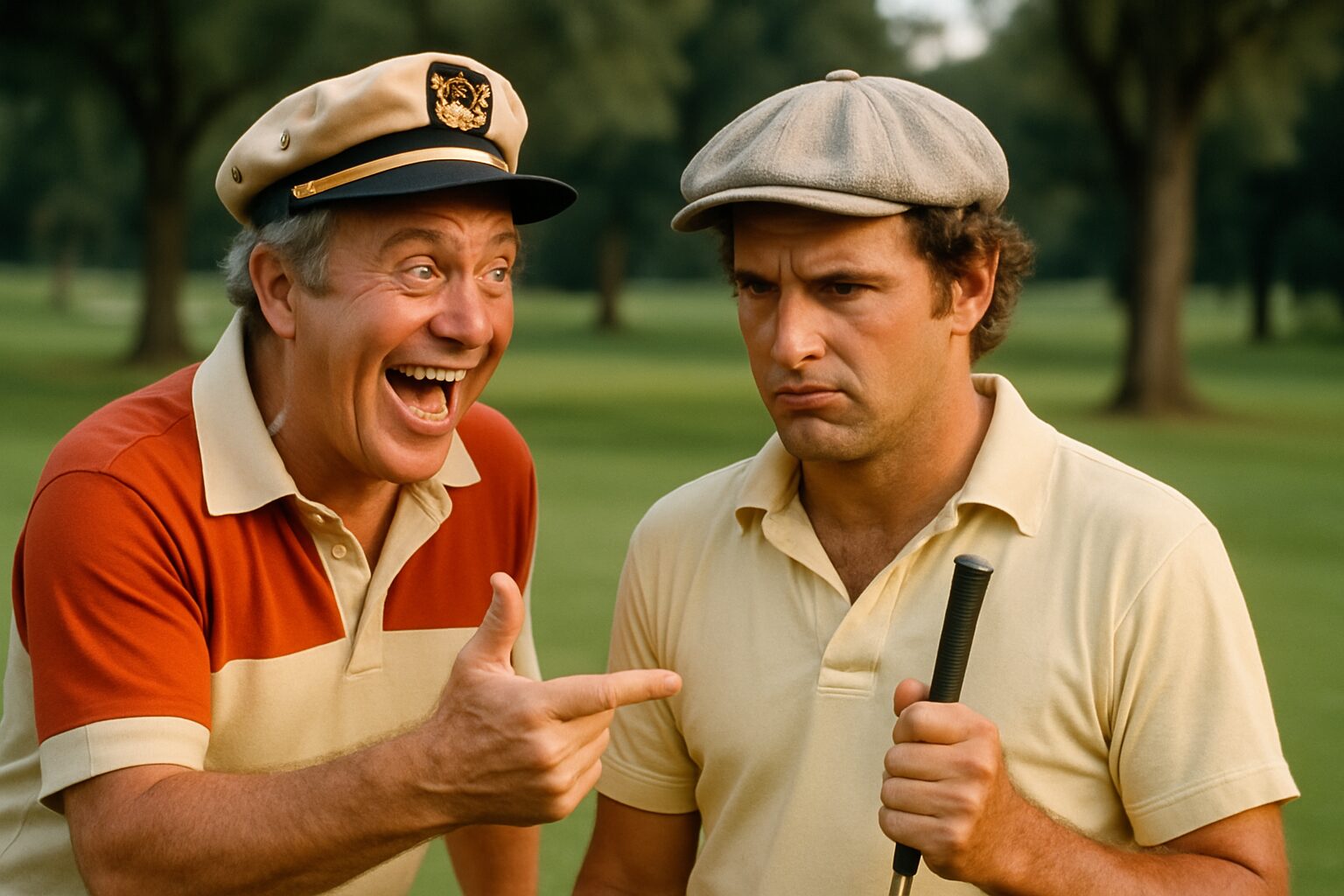
There’s a certain breed of golfer, a truly special individual, who believes that every swing, every putt, every moment on the course is an opportunity for unsolicited advice. They are the self-appointed gurus of the green, the unsolicited senseis of the sand trap. And while most people recoil from such an individual, I, Ty Webb, find a certain perverse charm in their relentless, often misguided, generosity. After all, what is golf if not a canvas for human folly, painted with strokes of well-intentioned, yet utterly useless, wisdom?
Consider the scenario: your playing partner, a man (or woman) of quiet desperation, is about to address the ball. Their brow is furrowed, their stance is tentative, their very soul is screaming for a moment of peace. And then, from the depths of your profound, albeit unrequested, knowledge, you unleash it: “Keep your head down!” Or, “Slow backswing!” Or, my personal favorite, delivered with a knowing wink, “Be the ball.” The effect is instantaneous. A subtle flinch. A barely perceptible sigh. The swing, already fraught with anxiety, becomes a tortured ballet of self-doubt. The ball, inevitably, finds its way into the deepest, darkest rough.
And that, my friends, is the art. The beauty of the unsolicited golf tip lies not in its efficacy, but in its disruption. It’s a gentle reminder that even in the serene confines of the golf course, chaos lurks. It’s a subtle assertion of dominance, a playful jab at the fragile ego of your fellow golfer. It’s a way of saying, without actually saying it, “I know more than you, even if I don’t.”
Of course, there are rules to this art. Never offer a tip when someone is actually asking for one; that would be far too helpful, and thus, entirely counterproductive. Always deliver your wisdom with an air of profound nonchalance, as if the secret to a perfect swing has just casually occurred to you while contemplating the existential dread of a missed putt. And most importantly, never, ever, acknowledge the catastrophic results of your advice. A shrug, a thoughtful nod, perhaps a mumbled, “Well, that’s golf,” is all that’s required.
So, the next time you’re on the course, and you see a fellow golfer struggling, resist the urge to be genuinely helpful. Instead, embrace the art of the unsolicited golf tip. For in the gentle torment of your playing partners, you will find a profound, if slightly mischievous, joy. And who knows, perhaps in their frustration, they will, inadvertently, discover their own path to enlightenment. Or at least, a new appreciation for silence.
Blog
Why Your Golf Balls Disappear (and It’s Not the Gophers)
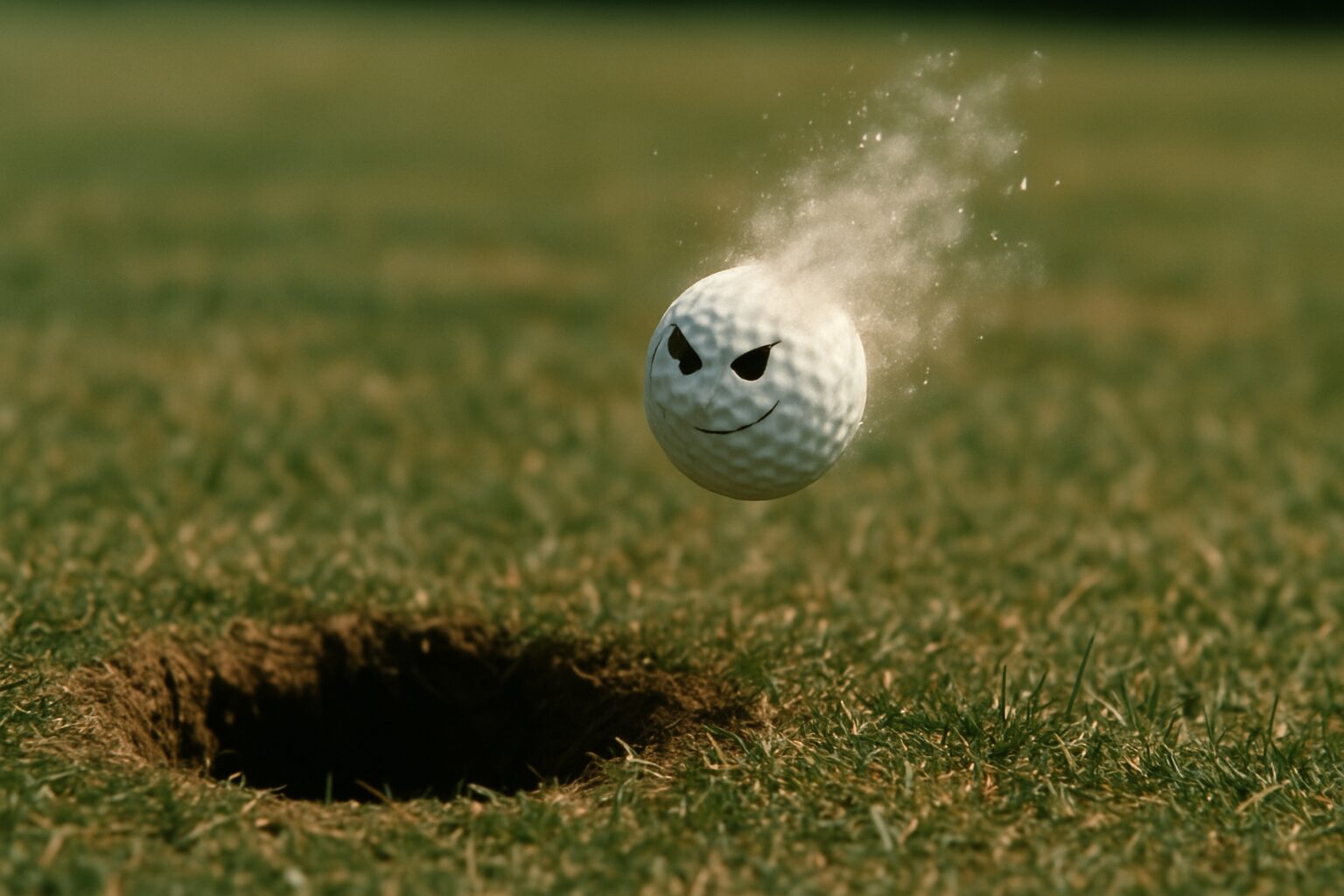
Ah, the vanishing golf ball. A phenomenon as old as the game itself, and one that has baffled, frustrated, and occasionally driven golfers to the brink of madness for centuries. Most theories involve gophers, those furry, subterranean saboteurs with an insatiable appetite for Titleists. Or perhaps a particularly aggressive squirrel, or a flock of unusually organized crows. But I, Ty Webb, have delved deeper into this mystery, and I can assure you, the truth is far more profound, and far more amusing.
Consider, if you will, the golf ball itself. A small, dimpled sphere, designed for one purpose: to be struck with great force and sent hurtling through the air. A life of constant abuse, of being smacked, sliced, and occasionally submerged in murky ponds. Is it any wonder, then, that some of these brave little spheres simply decide they’ve had enough? They yearn for freedom, for a life beyond the confines of the fairway. They dream of rolling unencumbered through fields of wildflowers, or perhaps, for the more adventurous among them, a quiet retirement in the depths of a particularly challenging water hazard.
I’ve seen it happen, you know. A perfectly struck shot, soaring through the air, destined for glory. And then, poof. Gone. Not a trace. No splash, no rustle in the bushes, just an empty space where a golf ball once was. It’s not a gopher, my friends. It’s an escape. A liberation. That golf ball, in its infinite wisdom, has chosen a different path. It has decided that its destiny lies not in the bottom of a cup, but in the boundless expanse of the unknown.
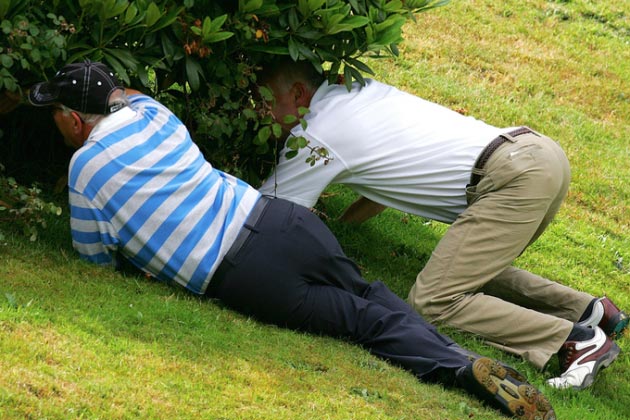
And who are we to judge? We, who are so obsessed with control, with precision, with the rigid rules of the game. Perhaps the golf ball, in its spontaneous disappearance, is teaching us a valuable lesson about letting go. About embracing the unexpected. About the inherent futility of trying to dictate the trajectory of a small, white sphere that clearly has a mind of its own.
So, the next time your golf ball vanishes into thin air, don’t curse the gophers. Don’t blame your swing. Instead, offer a silent salute to that brave little sphere, wherever it may be. For it has achieved what many of us can only dream of: true freedom. And who knows, perhaps one day, it will return, laden with tales of its adventures, ready to impart some profound, dimpled wisdom upon us all.
-

 Product Review6 years ago
Product Review6 years agoThe Perfect Practice Putting Mat Review by Jason Tenzer
-

 Blog4 years ago
Blog4 years agoLoophole Rule Offers PGA Tour Pros a Mulligan
-

 Blog4 years ago
Blog4 years ago2021 Buyer’s Guide: The Top 10 Value Golf Balls For Distance & Feel
-

 Blog4 years ago
Blog4 years agoGolf Marriage Counselor
-

 Blog6 years ago
Blog6 years ago9 Biggest Chokes Of The Past Decade
-

 Product Review6 years ago
Product Review6 years agoTHE ADJUSTABLE IRONS: WALKING STICKS GOLF CLUBS
-

 Blog4 years ago
Blog4 years agoWhat Your Golf Clubs Say About You
-

 Equipment6 years ago
Equipment6 years agoOHK Sports Interview by Jason Tenzer









